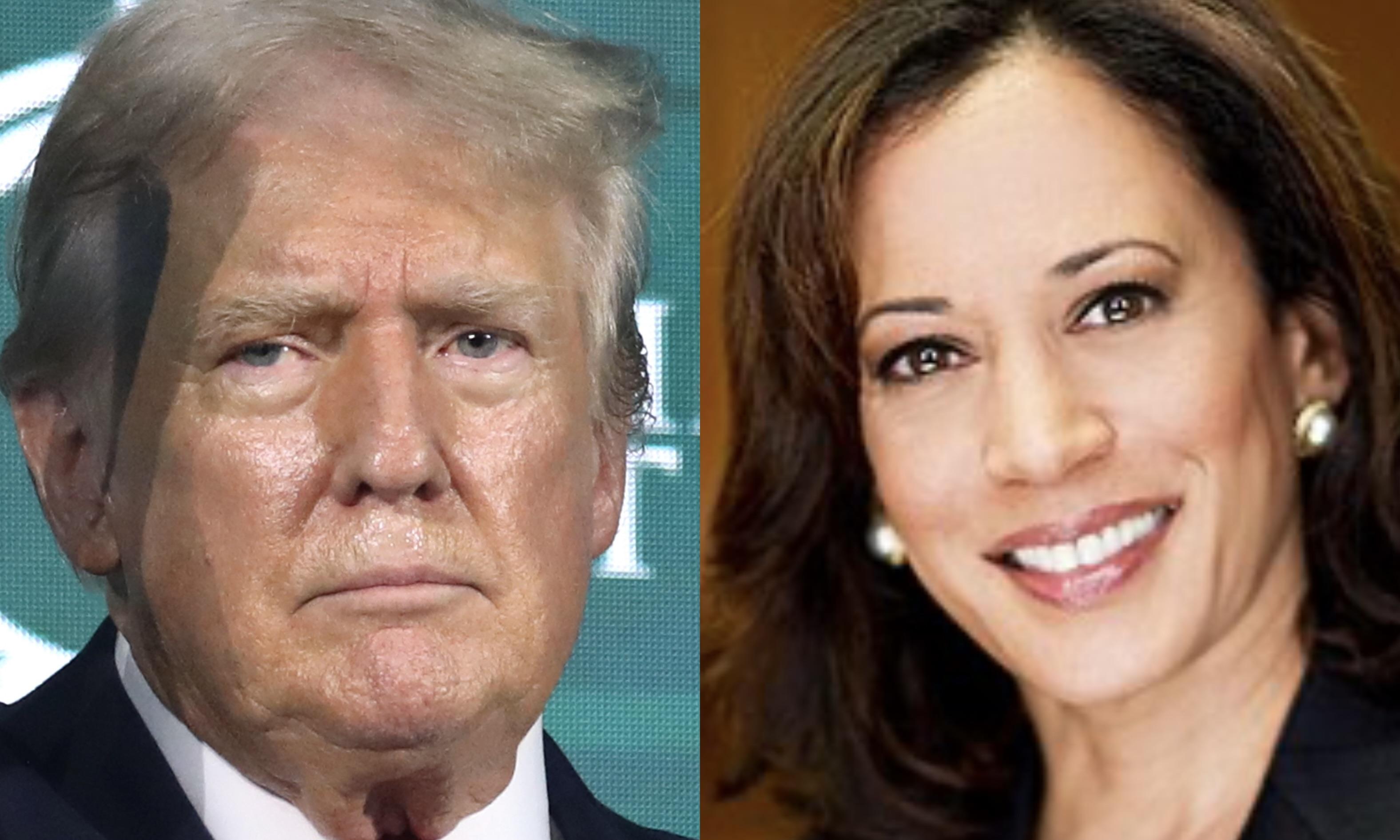Former President Donald Trump holds a 10.5-point lead over Vice President Kamala Harris in Iowa, according to a recent poll from Emerson College. The poll, which surveyed registered voters with a sample that included 36% Republicans, 32% Democrats, and 32% Independents, reports that Trump leads Harris with 53.2% of support compared to Harris’s 42.7%. This gap suggests that Trump maintains a strong advantage in the state, where he previously enjoyed substantial support in both the 2016 and 2020 elections.
Emerson College’s findings appear to contradict a Selzer poll released earlier, which showed Harris with a slight lead over Trump in the same state. Selzer polls are known for their accuracy in predicting Iowa outcomes, making this divergence significant. The discrepancy has fueled discussions about the reliability of polling data and the unpredictable nature of voter sentiment in the current political climate.
Political analysts attribute Trump’s lead to his enduring appeal among conservative voters in Iowa, where his “America First” policies resonate strongly with rural communities and evangelical conservatives. Despite ongoing legal battles and controversies that have surrounded him since leaving office, Trump’s support base remains largely intact, with many Iowa voters viewing him as a preferable alternative to Harris. “Trump’s message of returning power to the American people continues to have an impact here,” said Alex Walton, a political strategist based in Des Moines. “Many see him as a champion of their values, and he’s kept his base engaged.”
The poll has also stirred concerns among Democratic strategists who worry about Harris’s ability to secure votes in key states like Iowa, where independents often play a critical role in election outcomes. With 32% of the sample consisting of independents, Trump’s performance suggests he may be capturing the support of undecided voters who are wary of the current administration’s policies. This is especially concerning for Democrats, as Iowa is often viewed as a bellwether state that can set the tone for national campaigns.
Harris’s standing among independents in Iowa may reflect broader challenges for the vice president, who has faced criticism for her handling of key issues such as immigration and voting rights. Despite these challenges, Harris has maintained her commitment to advancing progressive policies and recently ramped up her outreach efforts in the Midwest. Her campaign team argues that Selzer’s poll is a more accurate reflection of the state’s political leanings, dismissing Emerson’s findings as an outlier due to its conservative-leaning sample.
However, Republican strategists argue that Emerson’s numbers indicate a trend favorable to Trump, asserting that Selzer’s findings are an exception rather than the norm. “Trump’s appeal transcends typical polling expectations in places like Iowa,” said Erin Todd, a GOP consultant. “If these numbers hold, Harris’s path to winning over swing voters could be much tougher than anticipated.”
As the 2024 election cycle continues, Iowa’s polling discrepancies underscore the heightened unpredictability in battleground states. For now, both parties remain focused on swaying the critical independent vote, which could ultimately determine the outcome in Iowa and beyond.



 Trump Says “Very Good Talks” Underway on Russia-Ukraine War as Peace Efforts Continue
Trump Says “Very Good Talks” Underway on Russia-Ukraine War as Peace Efforts Continue  TrumpRx Website Launches to Offer Discounted Prescription Drugs for Cash-Paying Americans
TrumpRx Website Launches to Offer Discounted Prescription Drugs for Cash-Paying Americans  U.S. to Begin Paying UN Dues as Financial Crisis Spurs Push for Reforms
U.S. to Begin Paying UN Dues as Financial Crisis Spurs Push for Reforms  Federal Judge Restores Funding for Gateway Rail Tunnel Project
Federal Judge Restores Funding for Gateway Rail Tunnel Project  Trump Signs “America First Arms Transfer Strategy” to Prioritize U.S. Weapons Sales
Trump Signs “America First Arms Transfer Strategy” to Prioritize U.S. Weapons Sales  Jack Lang Resigns as Head of Arab World Institute Amid Epstein Controversy
Jack Lang Resigns as Head of Arab World Institute Amid Epstein Controversy  Trump’s Inflation Claims Clash With Voters’ Cost-of-Living Reality
Trump’s Inflation Claims Clash With Voters’ Cost-of-Living Reality  Norway Opens Corruption Probe Into Former PM and Nobel Committee Chair Thorbjoern Jagland Over Epstein Links
Norway Opens Corruption Probe Into Former PM and Nobel Committee Chair Thorbjoern Jagland Over Epstein Links  U.S.-India Trade Framework Signals Major Shift in Tariffs, Energy, and Supply Chains
U.S.-India Trade Framework Signals Major Shift in Tariffs, Energy, and Supply Chains  U.S. Lawmakers to Review Unredacted Jeffrey Epstein DOJ Files Starting Monday
U.S. Lawmakers to Review Unredacted Jeffrey Epstein DOJ Files Starting Monday  Ohio Man Indicted for Alleged Threat Against Vice President JD Vance, Faces Additional Federal Charges
Ohio Man Indicted for Alleged Threat Against Vice President JD Vance, Faces Additional Federal Charges  Trump Backs Nexstar–Tegna Merger Amid Shifting U.S. Media Landscape
Trump Backs Nexstar–Tegna Merger Amid Shifting U.S. Media Landscape  South Korea Assures U.S. on Trade Deal Commitments Amid Tariff Concerns
South Korea Assures U.S. on Trade Deal Commitments Amid Tariff Concerns  U.S. Announces Additional $6 Million in Humanitarian Aid to Cuba Amid Oil Sanctions and Fuel Shortages
U.S. Announces Additional $6 Million in Humanitarian Aid to Cuba Amid Oil Sanctions and Fuel Shortages  Nighttime Shelling Causes Serious Damage in Russia’s Belgorod Region Near Ukraine Border
Nighttime Shelling Causes Serious Damage in Russia’s Belgorod Region Near Ukraine Border  Trump Endorses Japan’s Sanae Takaichi Ahead of Crucial Election Amid Market and China Tensions
Trump Endorses Japan’s Sanae Takaichi Ahead of Crucial Election Amid Market and China Tensions 































